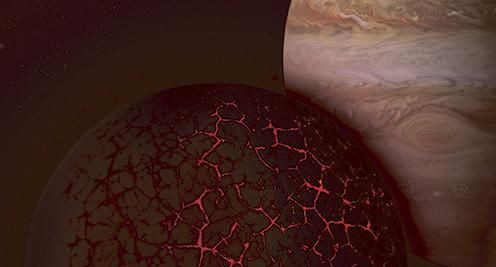Mars Likely Had Life-Supporting Conditions Much Earlier Than Thought

As scientists continue to study the history of Mars and its potential to host microbial life, a group of researchers has found that the planet’s solid crust, which encases the rocky world, formed merely 20 million years after the solar system came to be.
The find indicates that the outer layer of the red planet’s surface hardened as early as 4,547 million years ago. This means our neighboring world satisfied one of the most crucial conditions to host life at least 100 million years before Earth managed to complete the processes that shaped our world into what it is.
Crust formation is quintessential for the existence of life and if that happened so quickly on Mars, chances are that it also hosted a thick atmosphere, liquid water, and maybe life just around the same time.
“This is much earlier than Earth, by about 100 million years, meaning that life may have first originated on Mars,” study author Martin Bizzarro from the Centre for Star and Planet Formation (CSPF) told Newsweek. “Note that this is speculative and requires additional evidence.”
Previous work suggested that Martian crust – the end product in planet formation – took at least 100 million years to form. But, the latest work from Bizzarro and colleagues completely changes that view.
The group came to these results after taking a close look at a Martian rock found from the Saharan desert in 2011. Today, every gram of that precious meteorite, dubbed "Black Beauty," costs $10,000, but back in 2014, Bizzarro acquired it in exchange for other precious rocks. He got as much as 44 grams and crushed five of it to extract samples of a rare mineral known as zircon.
Also found on Earth, zircons serve as an archaeologist’s favorite dating tool. They save information about the environments in which they were formed and act as time capsules providing scientists critical insight into the time period in question.
In this case, the researchers sampled bits of zircons and were able to measure the age of decaying uranium, which got trapped into the mineral as and when molten Martian magma solidified to form the crust of the planet. The process revealed the age of the Martian crust in which the zircons formed.
“We discovered the oldest minerals—zircons—from Mars,” Bizzarro told Newsweek. “These zircons, which are about 100 million years older than the oldest terrestrial (from Earth) zircons, tell us that Mars had evolved a crust much earlier than Earth.”
The findings noted in this study also lends credence to a famous albeit recently suggested theory of planet formation. According to this method, called "pebble accretion," centimeter to meter-sized planet-forming particles accumulate into layers to support rapid planet growth. This method, as the researchers described, is much quicker than the other, more conventional theory that suggests planets start as dust particles, which coalesce over 50 to 100 million years to form a young planet.
The study titled “Evidence for extremely rapid magma ocean crystallization and crust formation on Mars” was published June 27 in the journal Nature.
© Copyright IBTimes 2024. All rights reserved.





















